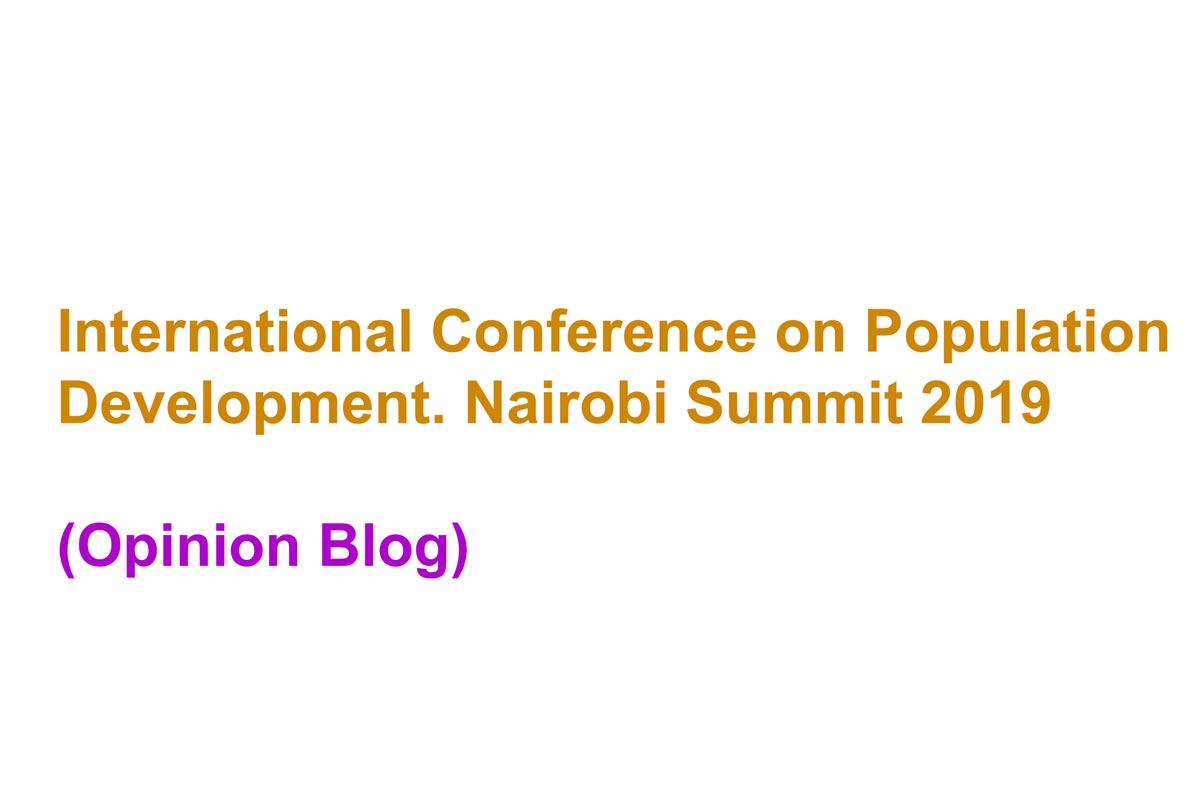The International Conference on Population Development (ICPD) was first held in Cairo, Egypt in the year 1994. This Conference gave the basic structure for – and is considered to be the steering document to – the United Nations Populations Fund (UNFPA). For this Conference, thousands of people from across the globe came together to talk about various issues like health concerns, migration, women’s education, family planning, etc. The ICPD also primarily paid a lot of focus to the reproductive health and sexual health of women in terms of sexually transmitted diseases, pre and post-natal care, safe deliveries, etc.
This year, the ICPD is on its 25th Chapter, and is currently being held in Nairobi, between 12th to 14th November. The ICPD 25 or the Nairobi Summit, seeks to mobilise political and financial efforts into preventing maternal deaths, gender based violence against women, and increasing awareness about family planning. The issues that are being addressed through this conference include the likes of sexual and reproductive health rights, sustainable development in terms of varying demographic densities, and ending gender-based violence. The Summit is bringing together political leaders as well as grassroots organisations from across the world, and providing them with a platform to discuss issues that are pressing in current times. The ICPD 25 is set to culminate with the preparation of an agenda, which is meant to be completed by the year 2030.
It is of utmost importance to include a gendered perspective when talking about issues of the population, especially in terms of healthcare. The ICPD has recognised reproductive health as a central concern in the sphere of women’s health. Even though reproductive healthcare is a cause for major concern for women, it doesn’t encompass the myriad of other health concerns that they may face. Women across the globe have less access to healthcare systems, and thus are affected disproportionately by many illnesses. Thus, it is important to widen the horizons of healthcare concerns for women, rather than constricted them to reproductive and sexual rights.
Women have always been associated with nature – they are considered to be natural caregivers and reproducers. The emphasis given to reproduction as a woman’s sole responsibility has relegated women to the private sphere. Recognising reproductive health rights as the only women-related health rights helps in perpetuating this idea of women being merely reproducers. It is time to acknowledge that women have health concerns in the various stages of her life, and not just during her fertile years. According to reports, heart diseases, certain types of cancer, autoimmune diseases, and mental illnesses such as depression and anxiety are more prevalent amongst women than men.
Another major cause of concern is the fact that women’s bodies have always been subject to constraints, causing aberrations to their bodily autonomy. These constraints are imposed on women’s bodies through the mass availability of mainly female-oriented contraception, putting the onus of reproduction, once again, on women. It is the need of the hour to not just concentrate on women’s reproductive rights, but also men’s reproductive and sexual responsibilities, so as to present a holistic picture of the reproductive sphere. Therefore, we must not only acknowledge ICPD as a platform that brings together masses to create dialogues about issues which are of immense importance, but also critically analyse these dialogues. Even though these dialogues cover a plethora of topics, it may be beneficial for them to enter into the conversation about healthcare through a more holistic vantage point.





